How Do You Know What Blue Light Glasses to Get?
Editor's note: Glasses that block blue calorie-free have become increasingly pop over the past few years—especially during the COVID pandemic, when we constitute ourselves stuck at dwelling house staring at our computers all mean solar day long. But experts including those at the American Academy of Ophthalmology (AAO) and the American Macular Degeneration Foundation say there's no solid evidence that blue light from electronic devices causes any harm. And yes, while studies accept shown that exposure to intense blue light from the sun can raise your take chances of cataracts, macular degeneration and other eye conditions, there is just not plenty light emitted from your laptop, iPad or telephone to cause harm or strain, the AAO has concluded. One large review found a lack of high-quality show that blueish low-cal blocking glasses to annihilation to amend sleep, alleviate eye fatigue, or protect eye health.
Of course, anyone who has stared at their fourth Zoom of the day knows how tired the eyes tin go from constant computer employ, but the AAO says that is due to the way we use our devices rather than the light emitting from them. They recommend sitting an arm's length abroad from your screen, taking frequent breaks (look away from your computer for at to the lowest degree 20 seconds every 20 minutes) and keeping lubricating eyedrops nearby (if your peepers tend to get dry). Y'all can also meliorate your sleep by reducing screen time before you hit the hay.
If y'all're all the same curious near bluish light glasses and want to give them a try, there'south no harm—you can find plenty of inexpensive and stylish options to test out. In fact, that'south what writer Gina Tomaine did. Here's what she had to say about her experience:
I'd heard of blue low-cal blocking glasses before: They were xanthous, ugly, and not worth the laughter I would get from both roommates and coworkers if I wore them regularly.
But, I had a trouble: For my job, I needed to spend a minimum of 8 hours a solar day staring at a computer screen. Plus, unfortunately, in my reanimation after work, I would often discover myself staring at another, smaller screen: the rectangle of my iPhone, which would constantly axle more blueish light into my face up.
I often felt similar my eyes were reddish and tired by the finish of the solar day, and wouldn't feel the ache begin to lift until I finally turned off my devices. According to the American Optometric Association, 58 percent of Americans endure from digital middle strain (DES), primarily from their laptop and desktop computers, just also from cell phones and tablets.
Blue lite itself isn't a bad matter. Information technology'southward everywhere, including in sunlight. Researchers take adamant that blue wavelengths — at the high terminate of the light spectrum, right before UV — are beneficial during daylight hours because they heave attending, reaction times, and mood.
Until adequately recently, humans were generally exposed to natural calorie-free during the twenty-four hour period and darkness at night. Simply now we're constantly bathing in artificial light, about of it blue. Studies have found that too much exposure to blue light at night suppresses the secretion of melatonin, a hormone that regulates sleep cycles.
A study in the Journal of Adolescent Wellness showed that when a group of young boys wore orangish spectacles while looking at their phones for a few hours before bed, they felt "significantly more sleepy" than when they wore clear glasses. Another study conducted with 20 adults had like findings. Admittedly, these were small studies, but the findings are intriguing.
Here's what I learned from wearing blue light blocking glasses for a week.
Blueish lite glasses don't have to be ugly.
The company I tried, Felix Gray, is a newer make. Their glasses filter out the college cease of the blueish light spectrum, so the lens don't expect yellow. They also add an anti-glare coating on top to cut down on digital eye strain.
The glasses are also adorably chic, with options to add magnification if y'all need it. I opted for Nash frames in the "Whiskey Tortoise" pattern with bluish light filtering and no magnification. The experiment was on.
They made me more than aware of my screen time.
I usually simply wear (non-light-blocking) glasses when I'thousand driving. I found that when I had to habiliment my blue light glasses every time I was looking at a screen, information technology made me more aware of but how frequently I was looking at a screen. I found myself surprised by how often I pulled out my laptop after I got home from piece of work, or just mindlessly scrolled through my phone.
As a result, I found myself getting more than intentional about putting the phone away, and actually sat on the porch and read more in the evenings. Even though my optics were still working by looking at the pages of a book, giving them a balance from ane more screen (the 1 I would typically be watching Netflix on) helped a ton, and I slept ameliorate afterwards.
I found other means to dial back on blue lite.
Since the glasses made me more than aware of blueish low-cal, I tried remedying the issue further with small fixes. My iPhone is at present set for "Night Shift" from 9 p.grand. to 7 a.k. The Night Shift role alters the colors of the phone's display to the warmer stop of the color spectrum, and so yous're exposed to less blue light that way.
To do this yourself on an iPhone, y'all can go to Settings > Display & Brightness > Night Shift, and set up the time you usually showtime getting set for bed. (You can also download apps that practice this on other phones.)
I also zeroed in on non-screen sources of artificial bluish lights. I learned that while LEDs are as well increasingly pop as room lights, they're not all the same. Warm white bulbs with less blueish tend to work better at night than cool white ones. There are also multiple bulbs that that can change the intensity of a light's colors with an app, or y'all can buy reduced-blueish LED bulbs for warmer lights in bedrooms.
Wearing them was totally worth it.
My eyes felt more rested at the end of the day (probably from the reduced screen fourth dimension and glare) and looked visibly less red and tired. Plus I got tons of compliments on my new glasses.
I would recommend these to anyone concerned about their digital heart strain — though I would also recommend trying to cut down on on LED lighting and screen fourth dimension at nighttime as much every bit possible. Y'all can also endeavor the xx-xx-20 rule at work and at home: When working on a screen, every 20 minutes look at something xx feet away for at to the lowest degree 20 seconds, an exercise recommended by the American Optometric Association.
As for how much I liked my blue low-cal glasses? I'm finished with my story — but I'm withal wearing them correct now.
If You Want to Try Blue Calorie-free Blocking Glasses
Here are a few good options depending on your preferences and cost range, including the ones I tried:
This content is created and maintained past a tertiary party, and imported onto this page to assistance users provide their email addresses. Y'all may be able to detect more than information near this and like content at piano.io
Source: https://www.goodhousekeeping.com/health/a20707076/blue-light-glasses/
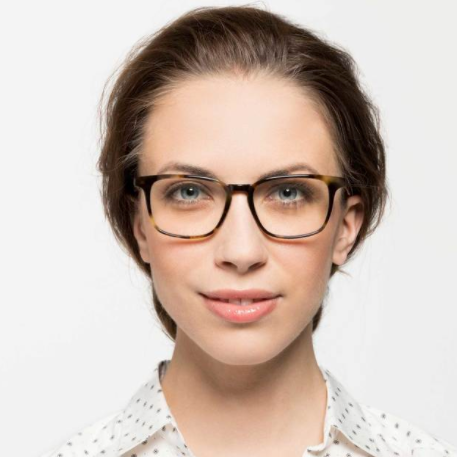
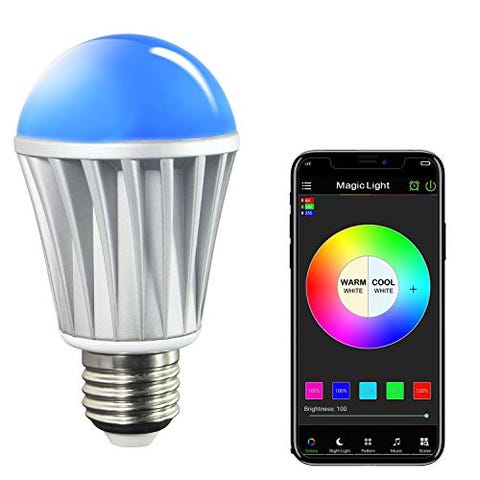
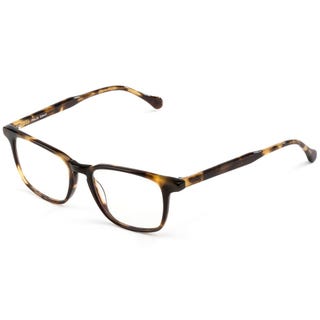
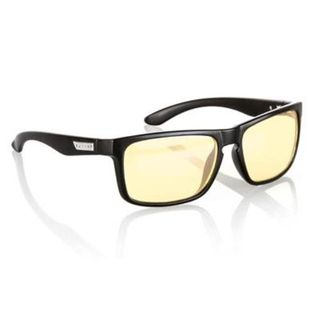
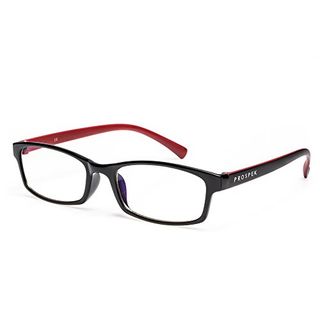
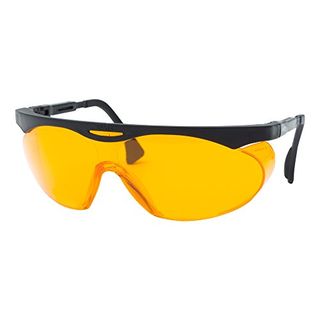
0 Response to "How Do You Know What Blue Light Glasses to Get?"
Post a Comment